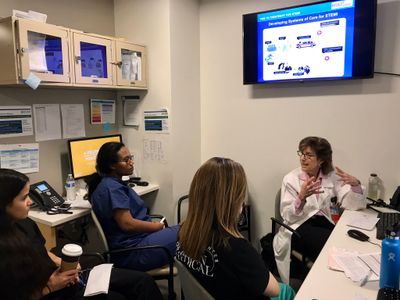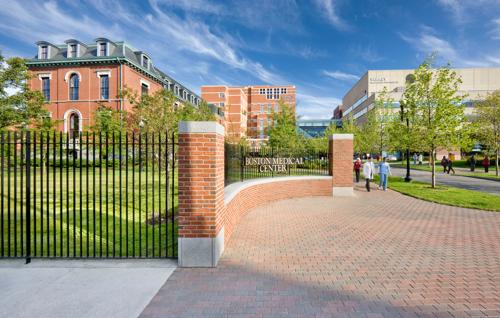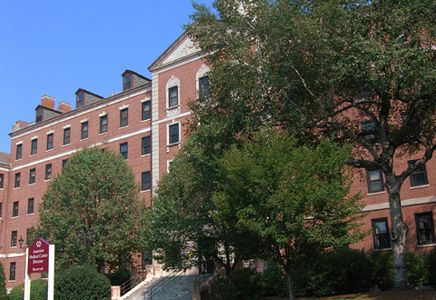Inpatient rotations take place at Boston Medical Center and the West Roxbury VA campus, with continuity clinics at both institutions for a comprehensive clinical experience. Fellows also benefit from diverse electives, such as nuclear imaging, adult congenital cardiology, and advanced heart failure, offered through partnerships with leading institutions across Boston.
Our rotations per fellowship year can be found here.
Boston Medical Center
 Boston Medical Center (BMC), a 514-bed hospital in Boston’s South End, serves as the primary teaching affiliate of Boston University School of Medicine. Formed through the merger of Boston City Hospital and Boston University Medical Center, BMC is New England’s largest safety net hospital and its busiest trauma and emergency center. Dedicated to delivering high-quality, accessible healthcare, BMC provides care to a diverse patient population, with 57% from underserved communities and 32% speaking languages other than English as their primary language.
Boston Medical Center (BMC), a 514-bed hospital in Boston’s South End, serves as the primary teaching affiliate of Boston University School of Medicine. Formed through the merger of Boston City Hospital and Boston University Medical Center, BMC is New England’s largest safety net hospital and its busiest trauma and emergency center. Dedicated to delivering high-quality, accessible healthcare, BMC provides care to a diverse patient population, with 57% from underserved communities and 32% speaking languages other than English as their primary language.
West Roxbury VA Hospital
Fellows dedicate significant time to inpatient services at the West Roxbury VA Hospital, the cardiac referral center for all of New England. Rotations include inpatient general cardiology, echocardiography, cardiac catheterization, and electrophysiology. The VA is staffed by cardiology fellows from BMC, Massachusetts General Hospital, and Brigham and Women’s Hospital, fostering extensive interaction and collaboration among the three programs.
Teaching

Boston Medical Center is deeply committed to fellow education. New fellows begin their training with a summer program during the first two months, featuring lectures that cover foundational cardiology principles and prepare them for call responsibilities in their first year.
Echocardiography is a vital aspect of cardiology, and BMC has developed a comprehensive echo curriculum that spans the fellowship. These sessions, which include both didactic and simulation components, cover a wide range of topics from basic to advanced concepts.
Fellows also participate in weekly didactic sessions held on Tuesday mornings for six months each year. These lectures, delivered by faculty, explore various cardiovascular topics. During this time, fellows are relieved of their clinical duties to focus solely on education.

